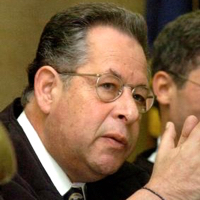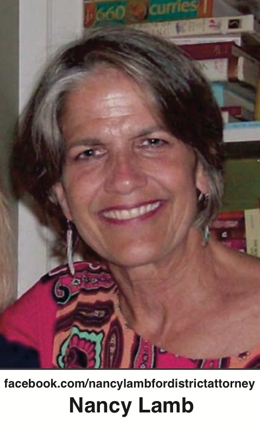Rascals case in brief
In the beginning, in 1989, more than 90 children at the Little Rascals Day Care Center in Edenton, North Carolina, accused a total of 20 adults with 429 instances of sexual abuse over a three-year period. It may have all begun with one parent’s complaint about punishment given her child.
Among the alleged perpetrators: the sheriff and mayor. But prosecutors would charge only Robin Byrum, Darlene Harris, Elizabeth “Betsy” Kelly, Robert “Bob” Kelly, Willard Scott Privott, Shelley Stone and Dawn Wilson – the Edenton 7.
Along with sodomy and beatings, allegations included a baby killed with a handgun, a child being hung upside down from a tree and being set on fire and countless other fantastic incidents involving spaceships, hot air balloons, pirate ships and trained sharks.
By the time prosecutors dropped the last charges in 1997, Little Rascals had become North Carolina’s longest and most costly criminal trial. Prosecutors kept defendants jailed in hopes at least one would turn against their supposed co-conspirators. Remarkably, none did. Another shameful record: Five defendants had to wait longer to face their accusers in court than anyone else in North Carolina history.
Between 1991 and 1997, Ofra Bikel produced three extraordinary episodes on the Little Rascals case for the PBS series “Frontline.” Although “Innocence Lost” did not deter prosecutors, it exposed their tactics and fostered nationwide skepticism and dismay.
With each passing year, the absurdity of the Little Rascals charges has become more obvious. But no admission of error has ever come from prosecutors, police, interviewers or parents. This site is devoted to the issues raised by this case.
On Facebook
Click for earlier Facebook posts archived on this site
Click to go to
Today’s random selection from the Little Rascals Day Care archives….
Click for earlier Facebook posts archived on this site
Click to go to
Today’s random selection from the Little Rascals Day Care archives….
For witch hunts, it’s location location location
Dec. 14, 2011
Among the leaders of the Committee for Support of the Edenton Seven was Doug Wiik, whose own Breezy Point Day School in Bucks County, Pennsylvania, had just been cleared of similar abuse accusations. I asked him to compare the two cases.
“I remember that Barbara Fleischman, a dear friend who had moved to North Carolina from Bucks County, called to let me know that the child abuse contagion had reared its head in Edenton.
“Having been deeply affected by my personal experience, I felt the need to reach out. I read about Raymond Lawrence’s formation of the Edenton Seven committee, and after several discussions with him and Dee Swain (a fuel dealer in Washington, N.C.) I was truly inspired to do what I could. I was gratified to find individuals who would fight the injustice being perpetrated upon the Kellys.
 “The eventual outcome in Little Rascals was the correct one, but the damage done to many individuals was enormous. We all have a list of heroes in our lives, and Bob Kelly and Dawn Wilson certainly were added to mine. Both stood firm in speaking truth to a community that lacked leadership in politics and law enforcement….
“The eventual outcome in Little Rascals was the correct one, but the damage done to many individuals was enormous. We all have a list of heroes in our lives, and Bob Kelly and Dawn Wilson certainly were added to mine. Both stood firm in speaking truth to a community that lacked leadership in politics and law enforcement….
“The Edenton case and my own were just two of many produced by the 1980s culture. It happened in Salem 300 years ago, and it will happen again some day.
“So why did my child care business survive, when so many others didn’t?
“We had the exact same claims of horrors perpetrated against children. We had the same media coverage that initially proclaimed ʻChildren don’t lie.ʼ We had the same overzealous child abuse investigators from the county Department of Children and Youth Services. We had the identical mass hysteria.
“But we also had leadership! District Attorney Alan Rubenstein was a seeker of justice, not political gain. He conducted a long, expensive criminal investigation, one that branded the parents’ and children’s claims as false and reckless.
“I’d also be remiss if I didn’t mention my employees and our parent community, who all knew nothing had happened at Breezy Point. They went on camera, wrote letters to editors and participated in several large meetings answering all questions about our school.
“My experience lasted five or six years, caused lots of heartache and did much financial damage. However, Breezy Point Day School still opens at 7 a.m. and closes at 6 p.m. every day and is still filled with several hundred happy children, parents and staff.
“It’s a shame Bob and Betsy Kelly chose Edenton, North Carolina, to open a child care business and not Bucks County, Pennsylvania.”
● ● ●
Later this week I’ll post excerpts from the DA’s 1990 investigative report, along with a few of his recollections (he’s now a judge).
Retirement looms for Rubenstein, who detected scam

phillyburbs.com
Judge Alan Rubenstein
Feb. 26, 2016
“What a waste it would be to force Bucks County (Pa.) Judge Alan Rubenstein from the bench. At 70, he remains sharp and vibrant, a jurist of impeccable credentials with vast institutional knowledge of Bucks County, not to mention historic accomplishments.
“As district attorney, Rubenstein tried more cases than any prosecutor in county history. And he was the only county DA to be elected four times, a measure of how well he did the job and how much voters trusted and appreciated him. Indeed, they rewarded him with a seat on the county bench, a post Rubenstein continues to relish and is in no hurry to relinquish.
“Yet, Rubenstein and every judge across the state faces mandatory retirement at age 70… unless voters extend the mandatory retirement age (to 75)….”
– From “Sound judgment: Too soon to retire,” editorial in the Bucks County Courier Times (Feb. 23) cached here
“No tribute to Judge Alan Rubenstein is complete without mentioning his wise and courageous decision not to pursue charges in the Breezy Point Day School case in 1990…. Countless other prosecutors across the nation fell hard for the ‘satanic ritual abuse’ moral panic, but Judge Rubenstein kept his head, investigated thoroughly and protected Bucks County from the nightmare that befell towns such as Manhattan Beach, Calif., and Edenton, N.C.”
— From my letter to the editor of the Courier Times (Feb. 26)
Unless Pennsylvania voters approve that referendum on the April 26 ballot, Rubenstein’s valuable service will be limited to fill-in duty.
Some septuagenarian judges, of course, should stay retired.
![]()
A call to ‘look within the bowels of the human psyche’
 Aug. 5, 2014
Aug. 5, 2014
Following up on Sunday’s post about Professor Sylvia Gillotte, I’ve strung together excerpts from our lengthy email exchange about her belief in “satanic ritual abuse.” My comments are in wide paragraphs; Professor Gillotte’s are in indented paragraphs.
● ● ●
I have read your 1993 article excerpted from “Representing Children in Family Court,” in which you expressed belief that widespread ritual abuse existed in day cares.
And I see now in your summer 2014 syllabus for “Legal Perspectives on Crimes Against Children” that Dr. Randall Noblitt was the only scheduled speaker.
Does this mean you continue to believe that the “satanic ritual abuse” day-care prosecutions were justified? Or has your opinion changed in any way?
…What objection would you have to my bringing Dr. Noblitt’s professional perspective on Dissociation and Trauma into my Legal Perspectives class?
Dr. Noblitt certainly would bring his own perspective to your class, but it is a perspective that has been thoroughly discredited by numerous psychologists, psychiatrists and academics.
Most recently, for instance, his testimony in the Fran and Dan Keller case in Texas proved pivotal in the overturning of their convictions.
The “satanic ritual abuse” era is a subject in many college classrooms. Yours is the only one I know where it is framed as anything but a moral panic. Although we obviously disagree, I welcome your thoughts.
The core of my professional opinion related to ritual trauma is not based upon the day care cases that received sensational media coverage during the ’80s and ’90s…. I followed those cases as a means of better understanding cases involving evidence of similar abuse – intergenerational in nature – in a number of cases with which I was involved as statewide staff attorney of the S.C. Guardian ad Litem Program. Like many, I initially found that such allegations lacked credibility — that is, however, until the sheer weight of the circumstantial evidence forced me to move outside of the accepted paradigm…. Only then was I able to understand the organized nature of this abuse, its intergenerational aspects, and its connection to dissociative trauma.
I would take exception to the accuracy of your assertion related to the Keller case and that Dr. Noblitt’s perspective is one that “…has been thoroughly discredited by numerous psychologists, psychiatrists, and academics.” There are a quite a number of professionals in the field of law, law enforcement, psychology, and social work who differ with the opinions that were shared in the link you provided, and who continue to treat victims of ritual trauma today. These professionals span the globe and are respected, credible professionals in their field. They quietly work with victims, so as not to be tried in the court of public opinion, and they toil against huge odds at great professional cost to help bring these individuals to a place of healing.
I do not believe or find it credible that hundreds of people, from toddlers to middle aged grandmothers, representing various nationalities and walks of life, having no connection to one another, have conspired to perpetuate a lie about victimization that garners no gain, and only hurts themselves. While the artifacts evidencing their abuse may not be available due to the dynamics of its perpetration – and a level of societal denial that dissuades professional involvement – the psychological aftermath of their abuse is impossible to ignore. It is like walking through a disaster area following a storm….
What I’m not seeing in your thoughtful and caring comments is any mention of the profoundly misguided child-interviewing techniques that fostered the fantastical claims on which the day-care prosecutions were built. It’s no coincidence that publication of “Jeopardy in the Courtroom: A Scientific Analysis of Children’s Testimony” by Stephen J. Ceci and Maggie Bruck (1995) coincided with the disappearance of the multiple-victim, multiple-offenderday-care cases that had occurred during the previous decade.
Another factor in bringing this era to an end was the $7.5 million malpractice settlement awarded a patient of ritual-abuse therapist Bennett Braun.
Also, I think you understate Randy Noblitt’s remove from the rest of the professional and academic world. The letter on behalf of the Kellers was signed by 39 respected experts – how many would the prosecution have been
able to come up with in support of Noblitt? I’m guessing none.
Most recently, Allen Frances, professor emeritus of psychiatry at Duke University and chair of the DSM IV Task Force, has issued a bold personal apology for having failed to expose the theoreticians and practitioners of “ritual abuse” therapy.
Even Wikipedia, whose entries typically cite a broad range of views, has barred “ritual abuse” believers from inserting their changes and additions on the subject.
I’m not imagining that our exchange is going to lead either of us to abandon our deeply held views, but I sincerely appreciate your discussing the subject with me. Maybe next semester your “Legal Perspectives…” course might include a guest speaker on “ritual abuse” other than (or even in addition to) Dr. Noblitt?
Many of the day care cases positively contributed to the development and strengthening of interview protocols and training for professionals across the field of child abuse and neglect. I discuss this in my class….
Here is my biggest problem with your approach. You continue to refer to all claims related to ritual trauma as “fantastical,” which leads me to believe that you still don’t fully understand the dynamics of how this type of abuse is perpetrated and unfolds, or how the “fantastical” elements are consciously designed to discredit children upon disclosure to dissuade investigation. Nor do you seem to understand the organized nature of this abuse and its connections to other recognized crime….
Insurance companies often settle (malpractice) claims based upon calculations that have more to do with financial considerations than the perceived or actual liability of the individual sued. Furthermore, are you surprised that the huge settlement against Braun would have had a chilling effect upon other therapists and professionals?…
Unless you are truly open to understanding the dynamics of this abuse, you cannot understand or appreciate the difficulty in investigating and prosecuting these cases, or the dearth of empirical evidence…. I use a small portion of my Legal Perspectives on Crimes Against Children to address how law enforcement might step outside the normal investigative paradigm in order to better understand, recognize, and investigate these cases so that, one day, we might actually be able to accumulate some of the critical physical evidence and empirical data that are missing.
The thing is, Mr. Powell, you can’t do this journey without a willingness to look into the darker side of humanity. You must be willing to challenge every previously held notion that you may have about the world and how it operates. You must push past your comfort zone and look beyond the veneer and the facade to what lies beneath the surface and within the bowels of the human psyche. You must be courageous enough to swim against the tide long enough to reach still water, where you can actually study dissociative trauma and even mind control in conjunction with ritual trauma allegations. Only then will you begin to see these allegations in their true light….
It is my understanding that the Kellers appealed their conviction based on the recantation of testimony of an examining physician, Michael Mouw, M.D., not specifically on Dr. Noblitt’s testimony….
(I erred. The Kellers’ appeal did cite Noblitt’s testimony, but the district attorney based her call to overturn their convictions on only Mouw’s recantation. In the event of a retrial, however, Noblitt’s crucial “expert” status will get the scrutiny it should have received earlier.)
About the letter signed by 39 “leading” psychologists and psychiatrists: I would want to know what their qualifications are, whether or not they are members of the International Society for the Study of Trauma and Dissociation (ISSTD), how and why they can so confidently refute the existence of ritual abuse, or if they have an agenda that suggests bias such as membership in or adherence to the False Memory Syndrome Foundation (FMSF).
I Skype (Dr. Noblitt) into my Legal Perspectives class to directly answer questions my students may have about dissociative trauma in general, as Dr. Noblitt is the author of several articles, chapters, and books on the topic of dissociation and ritual abuse….
Dr. Noblitt teaches at the California School of Professional Psychology at Alliant International University — Los Angeles. During his clinical practice (1983-2006), he treated more than 300 individuals who reported ritually abusive histories. Although a frequent target of the FMSF, he was not sued nor did he lose his license to practice psychology….
Dr. Noblitt is not a Lone Ranger, any more than I. While their numbers may be dwindling due to a lack of public and professional resources and support, there are professionals who continue to assist victims and other professionals in this field. Regrettably, misunderstanding of the nature of ritual abuse and its “fantastical” elements, as well as the mishandling of many of the highly public day care cases, have each served to drive many professionals underground or into the woodwork….
The public skewering of some of these professionals may have had a chilling effect on those victims seeking justice in the legal system, but it has not stopped their need for healing, and the vast majority of the professionals who treat these victims do so at great cost to themselves, mentally, emotionally, and financially. In this regard, those engaged in the organized perpetration of this abuse have indeed won, and you are an unwitting ally. When public discourse and academic freedom have been chilled or even effectively censored by such sites as Wikipedia, we may as well be living in China when it comes to ritual abuse. ….
Finally, if you are ever in Southwest Florida, let me know. Perhaps we can continue our dialogue in person. I find e-mail rather limiting in many respects.
Ms. Gillotte, I think we have taken our conversation to its natural end, and I again want to express my appreciation. Not everyone who holds your beliefs is willing to make the case for them in such scope and intensity.
I’ll look forward to that day when “we might actually be able to accumulate some of the critical physical evidence and empirical data that is missing.”
Nancy Lamb loses bid for district attorney
 Nov. 5, 2014
Nov. 5, 2014
Andrew Womble: 24,357 votes (53 percent)
Nancy Lamb: 21,411 votes (47 percent)
I’d like to attribute Nancy Lamb’s defeat to her misbegotten role in the prosecution of the Edenton Seven. But voters in the First Judicial District probably gave more weight to her being a Democrat and to her having allowed a backlog of cases during her time in the DA’s office.
Meanwhile in Massachusetts, another unrepentant promoter of the “satanic ritual abuse” day-care narrative, Martha Coakley, was defeated in her race for governor.











0 CommentsComment on Facebook